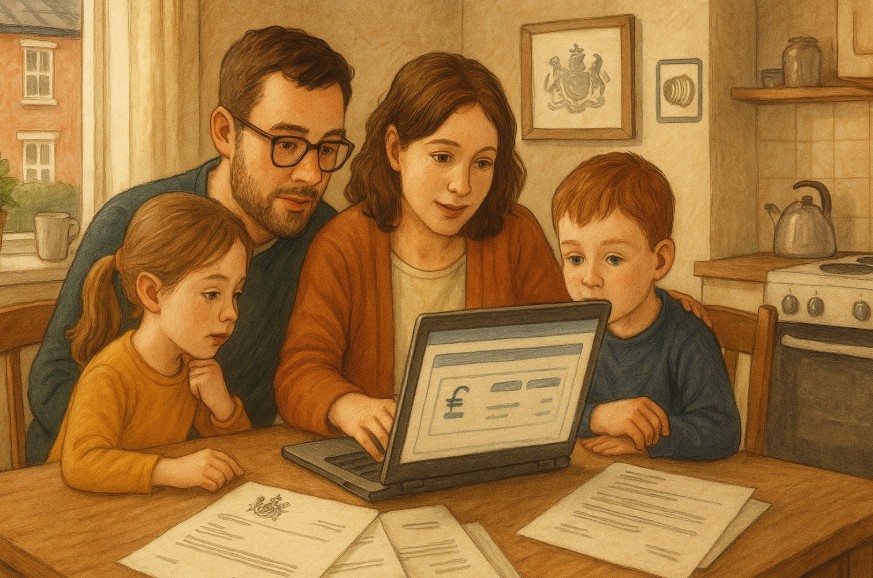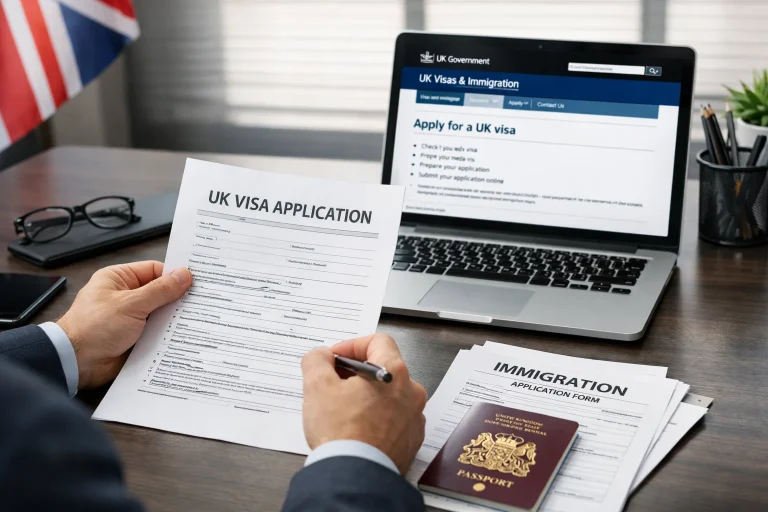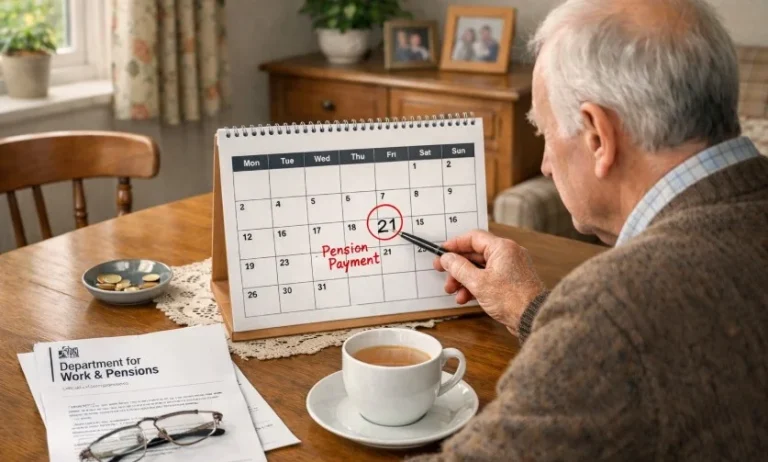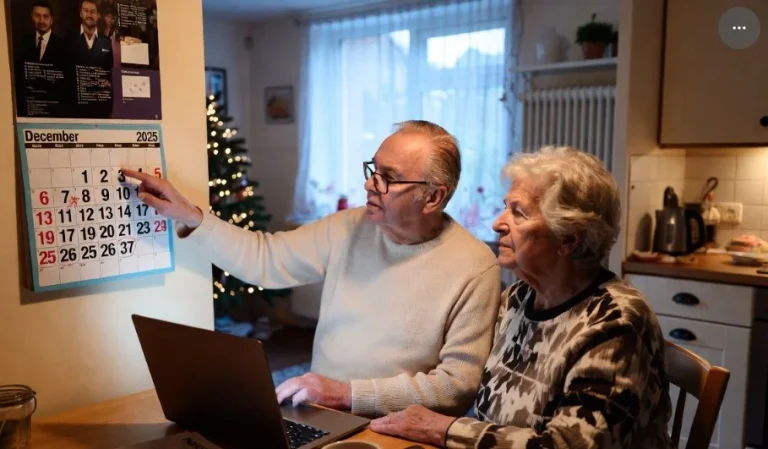Understanding when the next cost of living payment will be made—especially for those on Universal Credit—remains a key concern for millions of UK households in 2025. With inflation still posing challenges and energy bills continuing to stretch budgets, the need for financial clarity and accessible support is as urgent as ever.
While the government has confirmed the conclusion of the previous round of payments, changes in Universal Credit and local support initiatives are reshaping how aid is delivered. This article explores the status of the cost of living payments in 2025, what has replaced them, and how households can access ongoing financial support.
What Happened With The Final Cost Of Living Payment In February 2024?

The final cost of living payment valued at £299 was issued automatically to eligible households between 6 February and 22 February 2024. This marked the conclusion of the government’s temporary financial support scheme introduced in response to the cost of living crisis.
Recipients included individuals on means-tested benefits such as Universal Credit, Income Support, and Pension Credit. No application was necessary, and funds were paid directly into claimants’ bank accounts.
The payment was the third and final part of the £900 cost of living support announced for the 2023–2024 financial year. The instalments were made as follows:
| Payment Date Range | Amount | Eligibility |
| 25 Apr – 17 May 2023 | £301 | Means-tested benefit recipients |
| 31 Oct – 19 Nov 2023 | £300 | Continued eligibility |
| 6 Feb – 22 Feb 2024 | £299 | Final qualifying period met |
The Department for Work and Pensions (DWP) made it clear that any messages asking for personal information regarding these payments could be fraudulent. The public was advised to ignore unsolicited emails or texts and report suspicious communication.
Will There Be Another Cost Of Living Payment In 2025?
As of May 2025, the government has confirmed there are no current plans to issue another cost of living payment. The DWP officially stated on 6 May 2025 that the support scheme had ended and would not be extended into this year.
This marks a strategic policy shift. While earlier payments were provided to ease pressures caused by inflation, energy price increases, and economic uncertainty, the government now believes the broader fiscal environment does not justify further emergency support of this kind.
Ongoing support, however, continues in the form of reform measures and targeted schemes, especially through local councils and updated Universal Credit mechanisms.
What Support Is Still Available From The DWP In 2025?
Despite the end of direct cost of living payments, several other support measures remain in place to help vulnerable and low-income households.
The most prominent among these is the Household Support Fund, which has been renewed for 2025 with £742 million allocated to councils across the UK. The fund is aimed at providing:
- Food and fuel vouchers
- Grants for essential household items
- Help with clothing or emergency expenses
Each local council has discretion over how funds are distributed and what eligibility criteria apply. Households facing urgent needs are encouraged to contact their local authority to access available grants.
Additional support may also be provided through local welfare schemes, emergency housing funds, and direct application-based hardship support available through DWP or associated public service providers.
How Does The Universal Credit Change In April 2025 Help Low-Income Households?
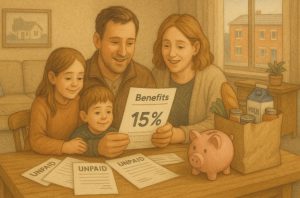
On 30 April 2025, a new policy change came into effect known as the Fair Repayment Rate. This reform reduces the cap on deductions made from Universal Credit payments for debt repayment.
Previously, up to 25% of a claimant’s standard allowance could be deducted to settle advance payments or other debts. This has now been reduced to 15%.
This change aims to ensure that households retain more of their monthly benefit to manage daily living expenses. It is expected to impact approximately 1.2 million households, including 700,000 families with children.
| Key Details | Information |
| Deduction Cap (Before) | 25% of standard allowance |
| Deduction Cap (Now) | 15% of standard allowance |
| Households Affected | 1.2 million |
| Average Annual Benefit | £420 retained income |
This change is part of a wider government agenda to create fairer and more sustainable benefit conditions while addressing the long-term needs of working families.
Who Is Eligible For Other Support Schemes Under Universal Credit?
While the core cost of living payments have ended, several targeted schemes remain available for those on Universal Credit and related benefits. Eligibility typically depends on:
- Receiving means-tested benefits
- Having children, a disability, or caring responsibilities
- Being in financial hardship or at risk of homelessness
Some of the schemes and grants that may be accessed include:
- Local Council Emergency Assistance Grants
- Housing Benefit Discretionary Payments
- Energy Support Vouchers
- Free School Meals and Uniform Grants
These schemes are often administered through local authorities or partnered with third-party organisations such as housing associations and community aid groups. Application processes vary, and claimants are encouraged to provide evidence of income and household circumstances when applying.
How Does The 2025 Universal Credit Plan Align With Long-Term Government Goals?
The reforms introduced in 2025 under Universal Credit are not isolated measures but part of a broader government vision to modernise the welfare system and make it more responsive to current economic and social challenges.
These changes, particularly the implementation of the Fair Repayment Rate, are central to the government’s Plan for Change—a long-term policy roadmap focused on raising living standards, combating poverty, and incentivising work.
One of the key goals of this strategy is to reduce the financial burden on low-income households by allowing them to retain more of their benefits.
The reduction of debt repayment deductions from 25% to 15% is designed to give people greater financial breathing room, which in turn helps them meet their daily expenses without falling deeper into hardship.
This policy aligns with broader objectives, such as:
- Encouraging financial resilience: By allowing families to keep more of their monthly income, the government aims to enable better budgeting and reduce dependency on emergency aid.
- Reducing poverty through employment: The government has introduced employment-based initiatives, including the Get Britain Working White Paper, which sets an ambitious target of achieving an 80% employment rate.
- Investing in future generations: Universal Credit reforms are part of a package that includes free breakfast clubs in all primary schools across England, ensuring that children start the day nourished and ready to learn.
- Enhancing job support infrastructure: The government is investing in modernising Jobcentres and creating a new jobs and careers service to offer better support for people entering or re-entering the workforce.
- Empowering youth: Through the Youth Guarantee, the government aims to ensure every young person under 25 is either earning or learning, reducing the risk of long-term unemployment and disengagement.
The policy direction also reflects a shift from reactive, crisis-driven support to proactive, structured assistance. By building long-term economic independence and focusing on sustained growth, the government intends to move households from welfare dependency towards financial stability.
This alignment between benefit reform and wider economic policy is intended to strengthen the UK’s social safety net while also addressing structural issues like child poverty, wage stagnation, and underemployment. The approach recognises that simply providing one-off payments is not a sustainable solution to economic hardship.
What Alternatives Exist If You’re Not Eligible For Cost Of Living Payments?
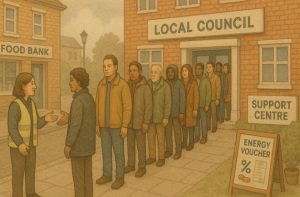
For individuals and families who do not meet the eligibility criteria for the now-ended cost of living payments, a range of alternative support mechanisms remain in place.
These alternatives, provided by both central and local government as well as third-sector organisations, are designed to address essential needs and offer targeted help.
Local Council Support
Local authorities continue to play a significant role in supporting residents facing financial difficulty. While eligibility and application processes vary by location, councils typically offer:
- Discretionary Housing Payments (DHPs) to assist with rent shortfalls or deposits
- Local Welfare Assistance Schemes for emergency needs, such as food or clothing
- Council Tax Reduction schemes for those on low incomes
In addition, many councils administer funds from the Household Support Fund, which can be used for a wide range of essential costs including energy, water, and home essentials.
Energy and Utility Support
With energy costs continuing to be a major pressure point for many households, a number of national programmes exist to provide relief:
- Energy Company Obligation (ECO4): Offers grants for insulation and heating system upgrades
- Warm Home Discount Scheme: Provides eligible households with a one-off £150 discount on their electricity bill
- Fuel Vouchers: Available through local authorities and charities for households with prepayment meters
Charities and Non-Governmental Organisations
The third sector also offers a vital lifeline for individuals not covered by government schemes:
- Citizens Advice provides free legal and financial guidance on accessing benefits and managing debts
- The Trussell Trust supports food banks across the UK and can provide emergency food parcels
- Turn2Us and StepChange offer access to charitable grants and structured debt management services
These organisations often operate on a referral basis and can provide targeted support for specific groups such as disabled individuals, single parents, carers, and the elderly.
Employment and Training Support
For those seeking to improve their financial situation through employment, there are training schemes and work placement initiatives accessible via Jobcentres and local employment services. These include:
- Skills Bootcamps and retraining programmes funded by the Department for Education
- Support for Starting a Business, including access to startup loans and mentoring
- Work Coach Assistance to help with CVs, interview preparation, and job matching
Financial Products and Budgeting Tools
Finally, some not-for-profit credit unions and community banks offer low-interest loans and budgeting tools tailored to people with poor credit or irregular income. These services are designed to prevent reliance on payday lenders or unaffordable borrowing.
In conclusion, while the central cost of living payments may have ended, a comprehensive network of alternative support exists for those in need.
Accessing this support often requires proactive steps, such as contacting local councils, charities, or Jobcentres, but the range of options is diverse and can make a meaningful difference in managing day-to-day expenses.
How Can Households Protect Themselves From Cost Of Living Payment Scams?

The DWP has highlighted the rise in scam messages related to cost of living payments. These messages may appear as official correspondence but often ask for personal information or banking details under false pretences.
The government advises the public to be cautious and follow these key steps:
- Never share personal details via text or email
- Always verify the source by checking on the official Gov.uk website
- Report any suspicious communication to Action Fraud
It is also advisable to turn on multi-factor authentication on any online accounts linked to benefits and to ensure contact details are up-to-date with the DWP.
Conclusion
Although the government has confirmed there will be no new cost of living payments in 2025, various other forms of support remain in place.
The Universal Credit deduction reform marks a shift towards sustainable financial relief, offering households more control over their income.
For those still facing hardship, the Household Support Fund and local council initiatives provide crucial safety nets. While direct payments may have ended, the UK’s welfare system continues to evolve to meet the needs of its most vulnerable citizens.
FAQs About Cost of Living Payment 2025 and Universal Credit
What was the total cost of living support provided since 2022?
Between 2022 and 2024, over £1,350 was distributed to low-income households through various cost of living payments. These were designed to combat inflation and soaring energy prices.
Why isn’t the government offering new cost of living payments in 2025?
According to the DWP, emergency payments are no longer planned as inflation and economic conditions have stabilised. Instead, focus has shifted to long-term support strategies.
Is the Household Support Fund available to everyone?
No, eligibility is based on need. Applicants must usually prove financial hardship and meet local council criteria to qualify for assistance.
How do I find out if I qualify for Universal Credit deductions relief?
If you’re repaying debt through Universal Credit, the new 15% cap should be automatically applied from 30 April 2025. Contact DWP or check your online UC journal to confirm.
What should I do if I receive a scam message about payments?
Do not respond. Check the official Gov.uk website for announcements and report suspicious messages to Action Fraud or the DWP.
Can I still get help with energy bills in 2025?
Yes. Local councils and some charities are offering energy bill support through vouchers, grants, or insulation funding. Check with your local authority for current schemes.
How does Universal Credit now support people in debt more effectively?
By lowering the deduction cap from 25% to 15%, claimants retain more of their benefits. This supports better budgeting and long-term debt recovery.

